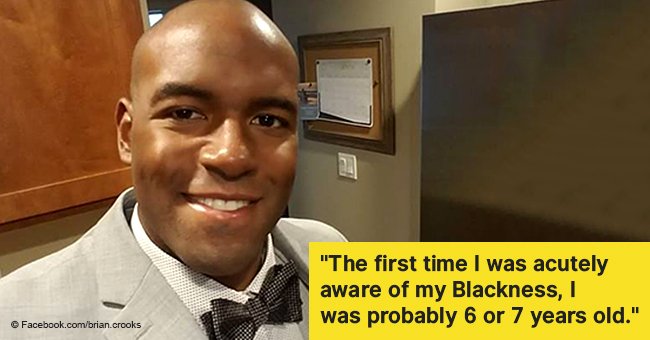
This is the story behind man's viral essay about growing up Black America
Two years ago, a University of Iowa graduate shared an essay recounting the events on his life that made “growing up black in America” a harsh experience. The essay is still relevant to this day and is worth reading over it again to understand a bit more the background of the “Black Lives Matter” movement.
When Brian Crooks decided to write down a Facebook post of almost 5000 words about his life as a black kid in America, he never thought people would read it. So, imagine his surprise when the post that takes up to 10 minutes to read went viral.
A Naperville native, Crooks was once labeled as “the whitest black guy,” all because he used proper grammar, clothes that fit, and listened to metal music on top of hip-hop. In other words, he wasn’t a caricature of the black man that society has established.
Crooks recalled how he was the only black student in his class in elementary school, and then one of the few in high school. He also explained that he dreaded February, Black History Month because he was automatically the designed reader everytime the class had to discuss Jim Crow or Black Codes.
HEARTBREAK AND POLICE ENCOUNTERS
His first heartbreak was caused by racism.
Living in a mostly white neighborhood, Crooks’ first girlfriend was white. They had a great relationship, and her mother and stepfather were okay with Brian, but then her biological father found out he was black. “A week later, she called me crying and said we had to break up. Her dad didn't support her dating a Black person. So, my first heartbreak came as a direct result of racism,” he wrote.
Brian also detailed some of the many times he was pulled over for no reason or handcuffed just because an officer felt like it. Once, he recalled, after going home from university, he was pulled over less than a block away from his parents’ house, in Naperville.
The officer handcuffed him with no explanation, and only after he was in sitting in his patrol, the man explained there had been reports of gang activity in the are and Crooks matched the description of one of the gang members.
“He spent about 15 minutes searching my car while I stood handcuffed in the cold. My ID had my parents' address on it, but he still didn't think I lived there. I could tell he wanted to accuse me of having a fake ID. About a half hour after being pulled over, when he found nothing on me, nothing in my car, and nothing on my record, he reluctantly let me go.”
THE REAL MEANING OF BLACK LIVES MATTER
Crooks also provided some examples of white people he considered friends, colleagues and even ex-girlfriends who would use the race card and turn on him whenever they got mad or wanted to hurt him. They would apologize later, stating he had “misunderstood,” “but the fact is, they reach for racism because they think it'll emotionally and psychologically destroy you, and that's what they want to do at that moment."
His post came at a time where the nation was on edge for the shootings of Alton Sterling and Philando Castile, two black men killed by white police officers in Louisiana and Minnesota.
Crooks explained on an interview with WGN9 that he intended to raise empathy from readers, and maybe help understand that black people are not overreacting when they say being black in America is not a pleasant experience.
“It’s not saying that only Black Lives Matter or that Black Lives Matter more. What we are saying is that for the majority of American history, black lives have not mattered, or at least they have not mattered as much as white lives,” he added on his essay, which has now over 32k shares.
THE REACTIONS
He revealed to Press-Citizen that, after sharing his post, he received several messages from old high school and college acquaintances apologizing if they ever say something to offend him or failed to step up when someone else did it.
“And that really was the point of what I had written,” Crooks said. “I felt it was important to delineate between racism and racial sensitivity.”
Crooks also revealed that he got a call from the Naperville police chief. The man was receptive and wanted to let Brian know that the Naperville police was working to make sure black kids didn’t have to go through the same traumatic experiences he went through.
In the end, Crooks was thankful for the fact that so many people took some of their time to read his words, to which every black person can relate to some extent.
